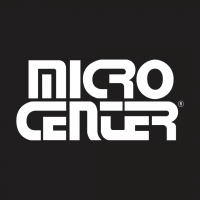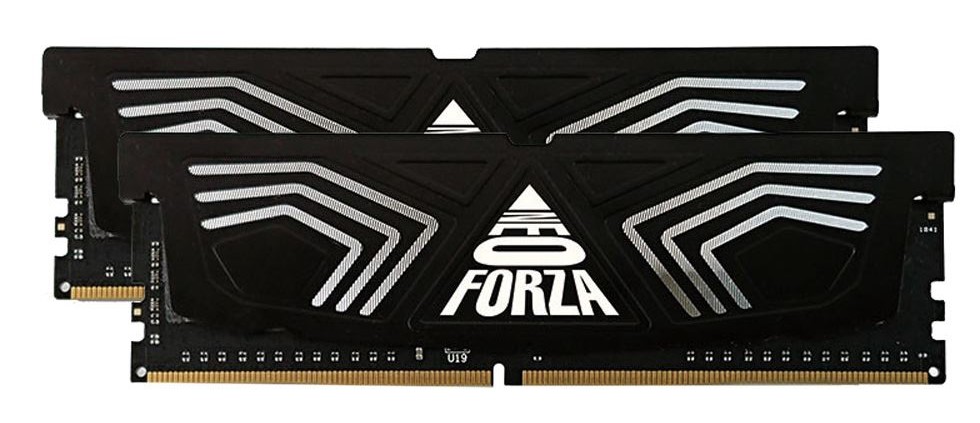How to determine RAM needs

By Jon Martindale
Memory, or RAM, doesn't affect your system's performance as much as the graphics card or processor, especially for gaming. But if you don't have enough of it, or if your RAM is particularly slow, it can prove to be a huge bottleneck for your PC's speed and make for a sluggish experience. In fact, if you fall well short of a game's demands, you might not even be able to run it at all.
That's why being able to answer the question, "how much RAM do I need?" is an important part of building or upgrading a PC, whether you're a PC gamer or just looking to do some intense web browsing and Netflix viewing.
If you want to build or buy a brand new PC, then the best way to find out how much RAM you need is to look at the requirements of the software you want to run. Windows 10 demands at least 2GB itself, while running 10-15 tabs in Chrome will require at least another 2GB. Most modern games demand 8GB at a minimum; some as much as 16GB. Video editing will eat up as much RAM as you can throw at it, and editing in 4K or above could mean even 32GB of memory might not cut it for smooth performance.
When figuring out how much RAM I need in a new PC, I look at the requirements for what I want to do, and then make sure I have more than required. If I'm upgrading a PC to make it compatible with a new game, or if I want additional performance, there's another important question I need to answer first: how much RAM do I have right now?
G.Skill Trident Z RGB 32GB (2 x 16GB) DDR4-3200
How Do I Check How Much RAM I Have?
Learning how to check how much RAM you have installed is quick and easy, as there are two ways to do it. The first is opening the side of the case and looking at the memory itself. If it's any kind of branded memory from a major manufacturer, it will likely have a sticker on it telling you everything you need to know, from the size of the memory module (in Gigabytes or GB), to its speed. Add up the amount on each stick and the total is how much RAM you have.
Alternatively, you can go the software route. Search for "PC" in the Windows search bar, and right-click "This PC." Select "Properties," and the "System" Window will open. Next to "Installed memory (RAM)" is a number that will tell you how much RAM you have.
How Much RAM Do I Need For Gaming?
The answer to this question is very much dependent on what type of games you want to play, and what sort of settings you expect to play at. My answer to how much RAM do I need for gaming, might be very different from yours. I tend to play a lot of indie games, so although I have a fast, 16GB Corsair 3,200 MHz kit in my PC, it's completely overkill.
Is 8GB of RAM good for gaming? Yes, if you game like I do. If you want a cutting-edge gaming system playing at the highest resolutions, or want to stream and game at the same time your "how much RAM for gaming" question will give a very different answer.
With memory prices as low as they are, 8GB is the bare minimum for any gaming PC, but 16GB is a better bet to give you access to a wider range of modern games. Anything more than that isn't strictly necessary, although 32GB would future proof your PC a little more.
Don't spend too much or go too big though. Remember to ask yourself: what does RAM do for gaming, really? The answer is: load game assets. If you have enough of it and you aren't using the slowest memory out there, more or faster sticks won't make a huge difference.
Corsair Vengence RGB Pro 32GB (2 x 16GB) DDR4-3200
How Much RAM Do I Need For Work and Web Browsing?
Typically, work and web browsing require far less RAM than gaming, but certain tasks, like video editing, can demand far more. If all you're doing is answering emails and checking social media, tablets or low-end laptops with 4GB of RAM would suffice, but 8GB of RAM is still a better bet to give you better support for a greater number of tabs and higher resolution streaming.
If you are video or photo editing, 16GB is the bare minimum you should opt for, with 32GB worth considering if you're planning on working with higher resolution material.
Comments
-
I was finding 16 GB of Ram to be plenty for regular or gaming use. The only reason one should get more than 16GB of Ram is for either streaming, CAD(computer aided design), or enterprise use.
-
Something to add to this is not to get too focused on the MHz that RAM describe. Anything over 3200 to 3600 mhz will start to have diminishing returns in terms of gaming performance. As 4000+ mhz speed ram starts to just become so fast gaming hardware isn't made to take advantage of such fast speeds. The result is someone can easily spending far more than needed on Ram. Even by future proofing standards its a bit overkill unless you plan to do some crazy benchmarking in parallel with gaming.
3200 to 3600 mhz might have as much as 12 to 15% fps gain in comparison to their slower 2133 to 2400 mhz.
But anything higher than 3600 Mhz starts bleeding into diminishing returns with Ram at like 4000 mhz and above will only be like 5% and 8% gains on their 3000 MHz bretheren. Making their performance to price value start to become rather steep.
-
This can be true, however it's important to factor memory frequency in against CAS latency (in conjunction with other tertiary timings) to determine Round Trip Latency. While the bandwidth obtained from operating at a higher frequency brings about diminishing returns (having more bandwidth than what your instruction set/CPU threads needs to complete a given task provides no value), the reduction in Round Trip Latency will always provide a linear performance boost.
To somewhat simplify this (ignoring secondary and tertiary timings entirely), you can calculate a raw "true latency" value using this formula: CAS Latency / Frequency x 2000 = True Latency. Let's use CAS latency 16 as an example.
At 3600mhz with a CAS latency of 16, you'll have a true latency of 8.9ns (16/3600x2000=8.888888888888889, we typically round to the nearest decimal point)
At 4000mhz with a CAS latency of 16, you'll have a true latency of 8ns flat (16/4000x2000=8.) This is a 10% reduction in latency, and will often result in a similar gain in minimum framerate improvements (.1%/1% lows) in gaming. Average/max FPS likely won't change much at all, but memory often doesn't have too much of an impact on average FPS unless you're IO bound and are seeing an uplift from the bandwidth improvement itself.
Now if you are comparing 3600 C16 against 4000 C18, the 3600 C16 would technically be the faster of the two (8.9ns vs 9ns), and you wouldn't see a difference going with the 4000mhz kit. This is why its always important to factor in both the frequency AND the timings as frequency alone cannot overcome a penalty to latency, and in consumer workloads, latency is always king. Bandwidth will only matter once you do not have enough of it, and having more than you need serves no purpose.
EDIT: I should also add that with the release of AMD's Infinity Fabric, higher operating frequencies for memory can result in significant gains in performance even if you are not bound by memory bandwidth thanks to the Infinity Fabric's dependency on the FCLK/UCLK synchronization. Running DDR4 4000mhz memory with a synchronized FCLK/UCLK/MEMCLK results in an IF speed of 2000mhz (half of memory frequency), whereas running DDR4 3600mhz would result in 1800mhz IF speed. Since the Infinity Fabric is what connects each CCD to each other and the IO die that houses the PCIe controller for your graphics card, the higher frequency memory may serve to provide a performance boost, even at a slight penalty to latency, assuming you could get it stable and WHEA free.
Memory can be a pretty tricky subject, but my advice is to always buy the best memory that your hardware can support (or overclock your memory to the best of your abilities). That way, you don't have to second guess whether memory is holding you back or not.
-
Don't forget to note that AMD's Ryzen CPUs are particularly sensitive to single vs dual channels. So populate memory banks in pairs when possible with Ryzens.
Categories
- All Categories
- 1 The Blog
- 1 What's Trending
- 7.9K The Community
- 3.2K General Discussion
- 136 New Members
- 856 Consumer Tech
- 227 Prebuilt PCs and Laptops
- 165 Software
- 32 Audio/Visual
- 53 Networking & Security
- 4 Home Automation
- 5 Digital Photography
- 14 Content Creators
- 30 Hobby Boards & Projects
- 83 3D Printing
- 83 Retro Arcade/Gaming
- 61 All Other Tech
- 398 PowerSpec
- 2.6K Store Information and Policy
- 149 Off Topic
- 58 Community Ideas & Feedback
- 614 Your Completed Builds
- 4K Build-Your-Own PC
- 2.9K Help Choosing Parts
- 327 Graphics Cards
- 335 CPUs, Memory, and Motherboards
- 146 Cases and Power Supplies
- 54 Air and Liquid Cooling
- 48 Monitors and Displays
- 93 Peripherals
- 66 All Other Parts
- 65 Featured Categories
We love seeing what our customers build
Submit photos and a description of your PC to our build showcase
Submit NowLooking for a little inspiration?
See other custom PC builds and get some ideas for what can be done
View Build ShowcaseSAME DAY CUSTOM BUILD SERVICE
If You Can Dream it, We Can Build it.

Services starting at $149.99






